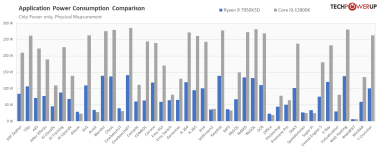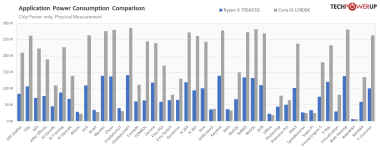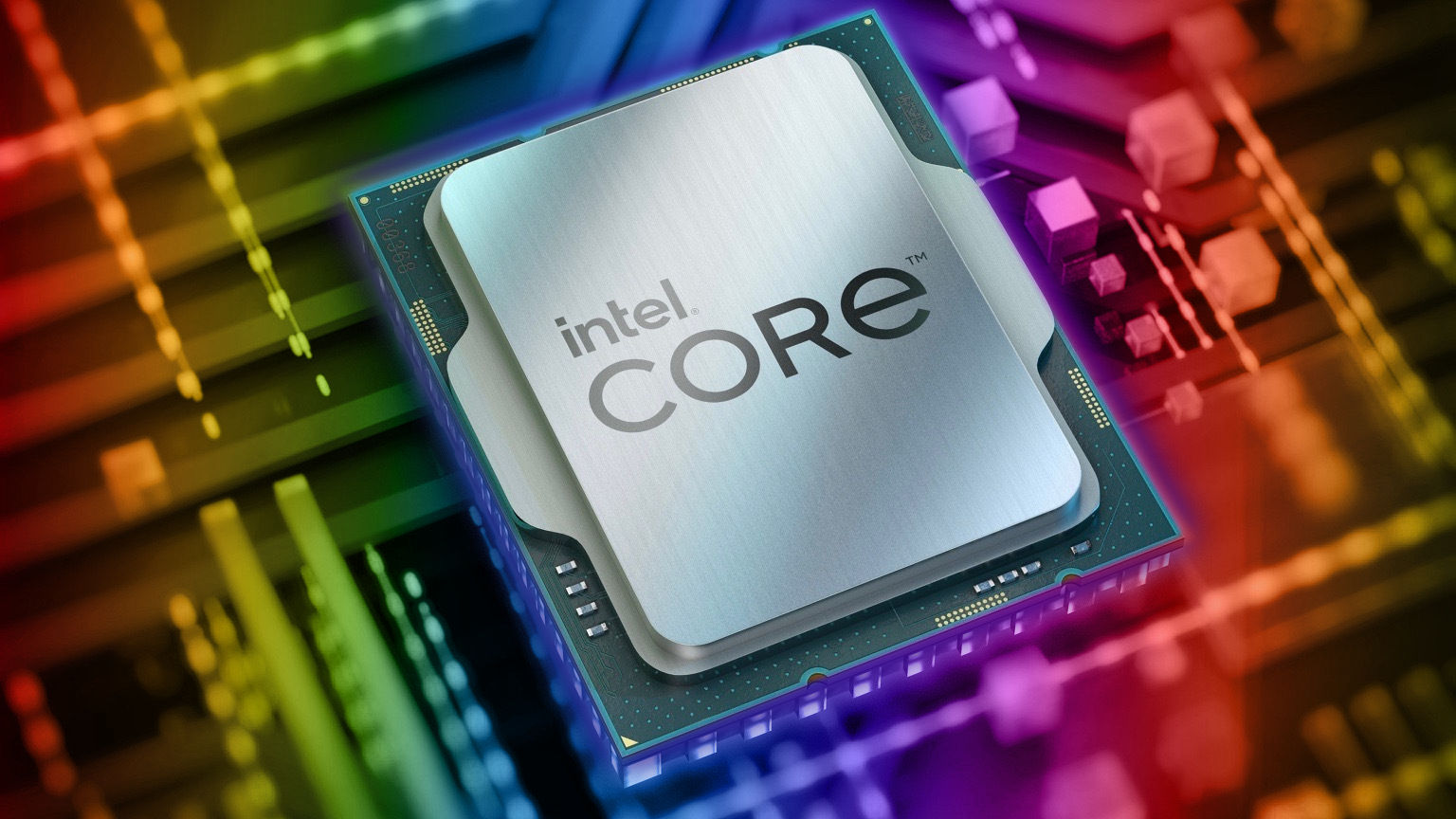Proper efficiency comparisons are done with identical power limits. TPU doesn't test with same power limits so they are kinda irrelevant. Case in point, if stock power limits were actually important in efficiency comparisons, then intel has by far the most efficient cpus with their T line of SKUS being limited to 35W. I would be amazed if a 13900t (or even a 13700t, 12900t etc.) do not absolutely smash the 7950x and the 7950x 3d in every single workload in terms of efficiency.
At similar power levels amd has a 10 to 20% lead in efficiency depending on the application in heavy MT workloads, but it loses badly in more mixed workloads like autocads premieres and the likes.. Gaming is a wash between the 7950x and the 13900k but the 3d does much better thanks to lower clockspeeds.
For my workloads, a 12900k is far more efficient than any amd CPU - it's not even a contest. After 5-8 hours of actually working I end up at 8w to 15w average power draw. That's less than what amd consumes at idle.
EG1. Also TPUS results are - as usual - completely flawed when it comes to power draw. We know that zen 4 idles at 20 to 50w depending on the motherboard, how the heck did TPU manage to have an application running while drawing less than idle power? Should I assume that running webxprt makes the cpu draw less than idle?
















